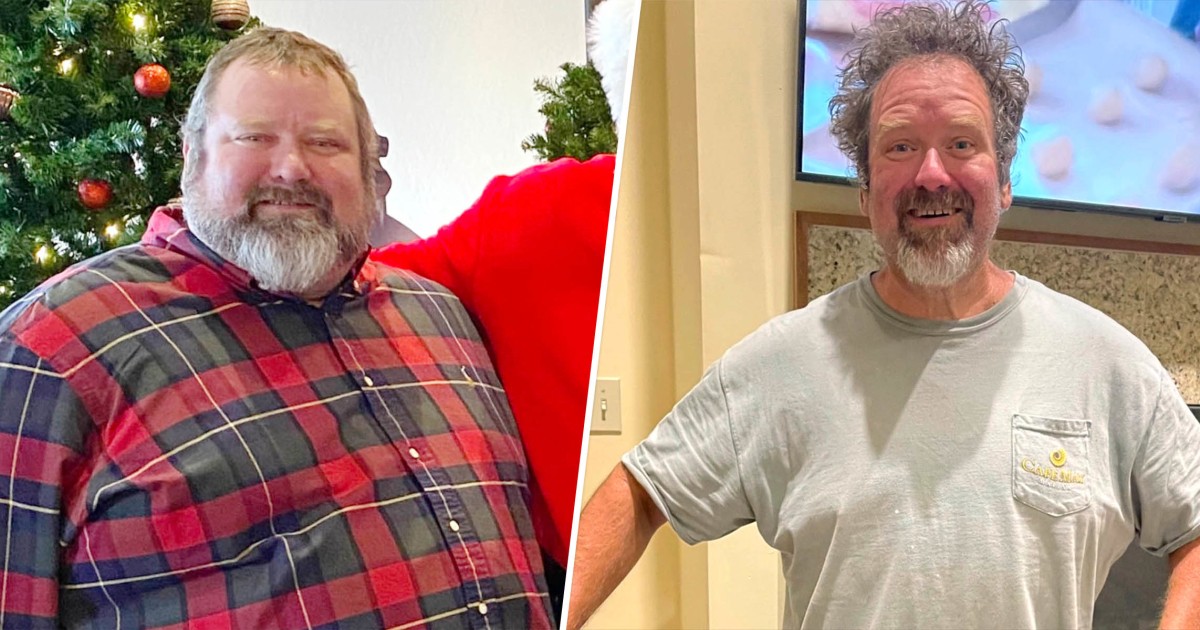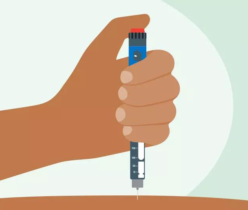Walmart’s ‘July Fourth Blowout:’ Best deals, according to a tech expert
Sections
Shows
More
Follow today
More Brands
Welcome to Start TODAY. Sign up for our¬ÝStart TODAY newsletter¬Ýto receive daily inspiration sent to your inbox ‚Äî and¬Ýjoin us on Instagram!
Weight loss is a top New Year’s resolution every January — made more intriguing this year as new weight-loss drugs could make the goal more realistic than ever for people with obesity.
If you’re looking for inspiration after weeks of holiday overeating, meet some of the men and women who transformed their bodies — and their health — in 2023.
Here are some of the top TODAY.com weight-loss journeys from this year and tips for weight-loss success in 2024 from members of Start TODAY:
Missy Gillenwater, 50, weighed 277 pounds when she began her walking routine. Following doctor’s orders, she also changed her diet after being diagnosed with acid reflux.
Gillenwater cut out fried and fatty foods, soda, tomato-based foods, red meat, bread and pasta. She focused on eating fresh vegetables and lighter meats, such as chicken, salmon and turkey. She also walks 10 to 13 miles a day.
She’s lost 114 pounds, and no longer has to take blood pressure and acid reflux medications.
Gillenwater advises others to take photos at every stage of the journey to keep themselves motivated.
It took several tries, but Tamara Loving, 45, finally ended the cycle of weight gain, loss and regain.
She joined WeightWatchers off and on for years, eventually losing 122 pounds and maintaining the weight loss since 2016.
With a family history of breast cancer, Loving had been undergoing regular mammograms. She was diagnosed with the disease in 2017.
“The doctors have said, ‘I think your weight loss saved your life.’ Because I don’t know if I still had been 260 pounds that anything would have been found in that mammogram,” she tells TODAY.com.
She’s maintained her healthy eating and exercise habits, working out five days a week, and has been cancer-free.
Melissa Paluch, 44, was frustrated when her weight reached 275 pounds. She had diabetes, high blood pressure, borderline high cholesterol and sleep apnea.
Her doctor recommended eating 1,300 to 1,400 calories a day, so Paluch began focusing on eating less at dinner.
She now plans her dinners for the week on Sunday nights, which helps her cut back on takeout food. She drinks 100 ounces of water a day and walks 3 miles daily.
She’s lost 96 pounds and improved her health.
Paluch advises others to be patient: “You didn’t put the weight on overnight, and you’re not losing it overnight,” she says.
Doctors call Zepbound the most effective weight-loss medication currently on the market. Approved by the U.S. Food and Drug Administration in November, it contains the same active ingredient as Type 2 diabetes treatment Mounjaro.
Alexis Mitchell took Mounjaro off-label for weight loss when she reached 365 pounds, and developed non-alcoholic fatty liver disease and insulin resistance.
She lost 15 pounds in the first month and 123 pounds in a year. “The weight was just falling off,” she told NBC News.
Mitchell has experienced side effects, including constipation, nausea and stomach pain, but says she’s no longer pre-diabetic and no longer has fatty liver disease so the positives of the drug overshadow any negatives.
When Nick Bricker weighed 437 pounds, he needed a rescue inhaler to help him breathe, medicine to control acid reflux and two drugs to lower his blood pressure.
Once the COVID-19 pandemic hit, he knew his health problems meant he’d likely die if he got the virus, so he started using a treadmill to get more active and lose weight.
Bricker, 52, started by walking 10 minutes at a slow pace. After a while, when he could walk for 20 to 30 minutes, he began walking outdoors. His current minimum is 12,000 steps a day.
He also changed his diet, eliminating bread, pizza, fried foods, potatoes, rice and sweets. Instead, he’s eating yogurt, peanut butter, smoothies, vegetables, lean proteins and salad.
Bricker now maintains his weight at 215 pounds.
“If I can do it, anybody can do it. My mindset for ten years was, ‘Tomorrow I’ll do it.’ But until today is that tomorrow, it’ll never happen,” he tells TODAY.com.
Dr. Emi Hosoda, 53, struggled with excess weight in the years leading up to menopause. Younger personal trainers often will tell women to just eat less and exercise more, but they’re not seeing women in their 40s, 50s and 60s, she says.
Hosoda lost 100 pounds by paying attention to the sugar value of food rather than its calories and eating a low-glycemic diet, which keeps blood sugar even.
She gets up at 4 a.m. to exercise a minimum of three days a week — warming up on a stationary bike for about 30 minutes and then lifting weights for about an hour.
For Robert Jones, the breaking point came when diabetes complications meant he had to have a toe amputated.
“When I got home, I said to myself, ‘I’m never going to lose another body part.’ That’s what changed my mindset. I don’t want to get sick again,” he tells TODAY.com.
At one point, Jones weighed 500 pounds, then got down to 360 pounds, but it was still causing a lot of health issues for him.
He started following a vegan diet and eats three or four servings of vegetables a day, including salads, beans, quinoa, lentils, rice, potatoes, yams, tofu and vegan meats. He also works out at the gym, lifting weights and doing cardio.
He’s lost 285 pounds.
Start with modest goals, Jones advises: “Trying to lose 100 pounds is too much. Start small, then increase every month or so, and you’ll eventually reach your long-term goals,” he says.
A. Pawlowski is a TODAY health reporter focusing on health news and features. Previously, she was a writer, producer and editor at CNN.
© 2024 NBC UNIVERSAL


